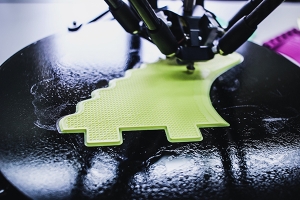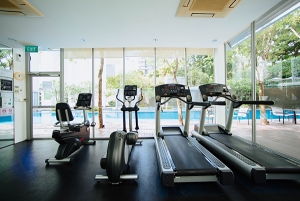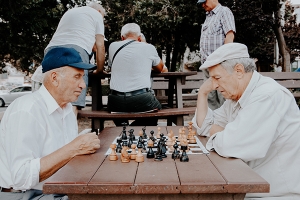-
Market opportunities for Frugal Innovation
- 2.1 Introduction and Learning Outcomes
- 2.2 Croatia – Innovation Performance and Frugal Examples
- 2.3 Ireland – Innovation Performance and Frugal Examples
- 2.4 Hugary- Innovation Performance and Frugal Examples
- 2.5 UK- Innovation Performance and Frugal Examples
- 2.6 Poland – Innovation Performance and Frugal Examples
- 2.7 Summary and activity for Market Oppoortunites
- 2.8 Test
2.2 Croatia – Innovation Performance and Frugal Examples
Croatia
According to the European Innovation Scoreboard, Croatia belongs to the group of Moderate Innovators (last place in the group).
Firm investments and innovators are the strongest innovation dimensions, while sales impacts and intellectual assets are the weakest ones .
Croatia and other countries taking part in the Frugal Innovation project according to the European Innovation Scoreboard 2018.


What frugal innovations are used in Croatia?
Our project team conducted research in their counties in order to find out the specifics of frugal innovation market.
The top-rated frugal innovation practices to come out of Croatia are below:
Bookcase in the capital city of Croatia, Zagreb is a wooden cottage which represents the Little Quarter Library, whose construction was initiated by the staff of the S. S. Kranjčević Library, with the support of the Peščenica-Žitnjak Regional Office and the Peščenica Municipal Board. In the project implementation, librarians and residents of Peščenica participated in the project. Librarians equipped the house with the first books to encourage reading, sharing books, socializing with the book, and taking care of the Little Quarterly Library. The goal of the project is to encourage people to read books, but also to link them together in today’s alienated world.
Get Kisha is the first Croatian smart umbrella that will allow you to always stay protected from rain and never forget your umbrella. Namely, the device is linked to a mobile application that will remind the owner of the church that he has forgotten the umbrella. The team who developed the idea of a clever umbrella sold the first 1000-piece series in just three months, which best describes the popularity of this device.

Even some other Croatian regions can boast of frugal innovations.
For example, in Primorje- Gorski kotar region, the following frugal solutions were developed and implemented:
 AnatoMRI is an innovative and completely new approach and learning method from the anatomy course. It is about the use of new technologies, more accurately the use of digitization in synergy with 3D printing, for the purpose of a new way of learning skeleton anatomy. AnatoMRI was created in the synergy of the Medical, Technical and Faculty of Civil Engineering of the University of Rijeka, and the equipment was obtained through the project RISK – Development Research Infrastructure at the University Campus of Rijeka. With the help of the new technology, AnatoMRI will be able to use replicas of real human bones created through 3D printers, which will then be able to be reproduced for the purposes of using and learning all students which will be more easier, cheaper and realistic.
AnatoMRI is an innovative and completely new approach and learning method from the anatomy course. It is about the use of new technologies, more accurately the use of digitization in synergy with 3D printing, for the purpose of a new way of learning skeleton anatomy. AnatoMRI was created in the synergy of the Medical, Technical and Faculty of Civil Engineering of the University of Rijeka, and the equipment was obtained through the project RISK – Development Research Infrastructure at the University Campus of Rijeka. With the help of the new technology, AnatoMRI will be able to use replicas of real human bones created through 3D printers, which will then be able to be reproduced for the purposes of using and learning all students which will be more easier, cheaper and realistic.
 Outdoor gym is placed in a municipality of Lovran, which is located near the city of Rijeka. The Fitness Park Urban S consists of six devices: mini fitness set, mini set fitness set, armchair, side swing, stretchers and abdominal equipment. All the products are the Croatian product of Vojtek d.o.o. made according to ISO 9001: 2008 and ISO14001: 2004 standards. The products are completely recycled and each device contains a tab with instructions for use, warning and description of functions performed by the body when exercising. Outdoor fitness will undoubtedly improve the tourist offer in the area of Lovran Municipality and will serve all recreational tourists whose sun and sea are not the only choice. By putting outdoor fitness in the environment it is promoting healthy lifestyles and encourage physical activity, reducing the number of diseases and problems of overweight in the local community, while also successfully contributing to the social and good psycho-physical condition of our members.
Outdoor gym is placed in a municipality of Lovran, which is located near the city of Rijeka. The Fitness Park Urban S consists of six devices: mini fitness set, mini set fitness set, armchair, side swing, stretchers and abdominal equipment. All the products are the Croatian product of Vojtek d.o.o. made according to ISO 9001: 2008 and ISO14001: 2004 standards. The products are completely recycled and each device contains a tab with instructions for use, warning and description of functions performed by the body when exercising. Outdoor fitness will undoubtedly improve the tourist offer in the area of Lovran Municipality and will serve all recreational tourists whose sun and sea are not the only choice. By putting outdoor fitness in the environment it is promoting healthy lifestyles and encourage physical activity, reducing the number of diseases and problems of overweight in the local community, while also successfully contributing to the social and good psycho-physical condition of our members.
 Servus – home-based speech. It is home management system with speech intended for people with severe disabilities and older and helpless persons. Servus is an electronic assistant that allows speech-based home management. With the help of Servus, the person can literally talk to his home and thus manage the lights, TV, telephony, door unlock, radio, heating, air conditioning, and even surf the Internet with speech. With the help of Servus, all these functions can be performed completely without the use of hands. Servus is primarily intended for people with physical disabilities and the old and helpless people, but also for those who want to have maximum comfort in their home. Servus currently supports Croatian, Slovenian, English, German, Italian and Dutch, and is constantly working on adding support for new languages.
Servus – home-based speech. It is home management system with speech intended for people with severe disabilities and older and helpless persons. Servus is an electronic assistant that allows speech-based home management. With the help of Servus, the person can literally talk to his home and thus manage the lights, TV, telephony, door unlock, radio, heating, air conditioning, and even surf the Internet with speech. With the help of Servus, all these functions can be performed completely without the use of hands. Servus is primarily intended for people with physical disabilities and the old and helpless people, but also for those who want to have maximum comfort in their home. Servus currently supports Croatian, Slovenian, English, German, Italian and Dutch, and is constantly working on adding support for new languages.
Not everyone can afford high-tech innovation. Do you know that the at-risk-of-poverty threshold for a one-person household amounted in 2016 to 25 668 kuna per year, which means €3439.00 per year (€283.34 per month).
According to the Croatian Bureau of Statistics, the people at risk of poverty or social exclusion indicator refers to persons who are at risk of poverty, or severely deprived, or living in a household with a low work intensity. According to this indicator for 2016, there were 28.5% of persons in that position in the Republic of Croatia.
Almost 1/3 of the Croatian population are very price-conscious consumers. Offering low-cost products makes them more affordable for excluded groups of people and this way boost the social inclusion.
Source: European Innovation Scoreboard 2018 – Executive summary, European Commission, 21/06/2018
https://ec.europa.eu/docsroom/documents/30201

